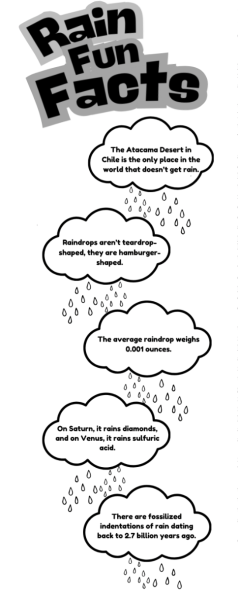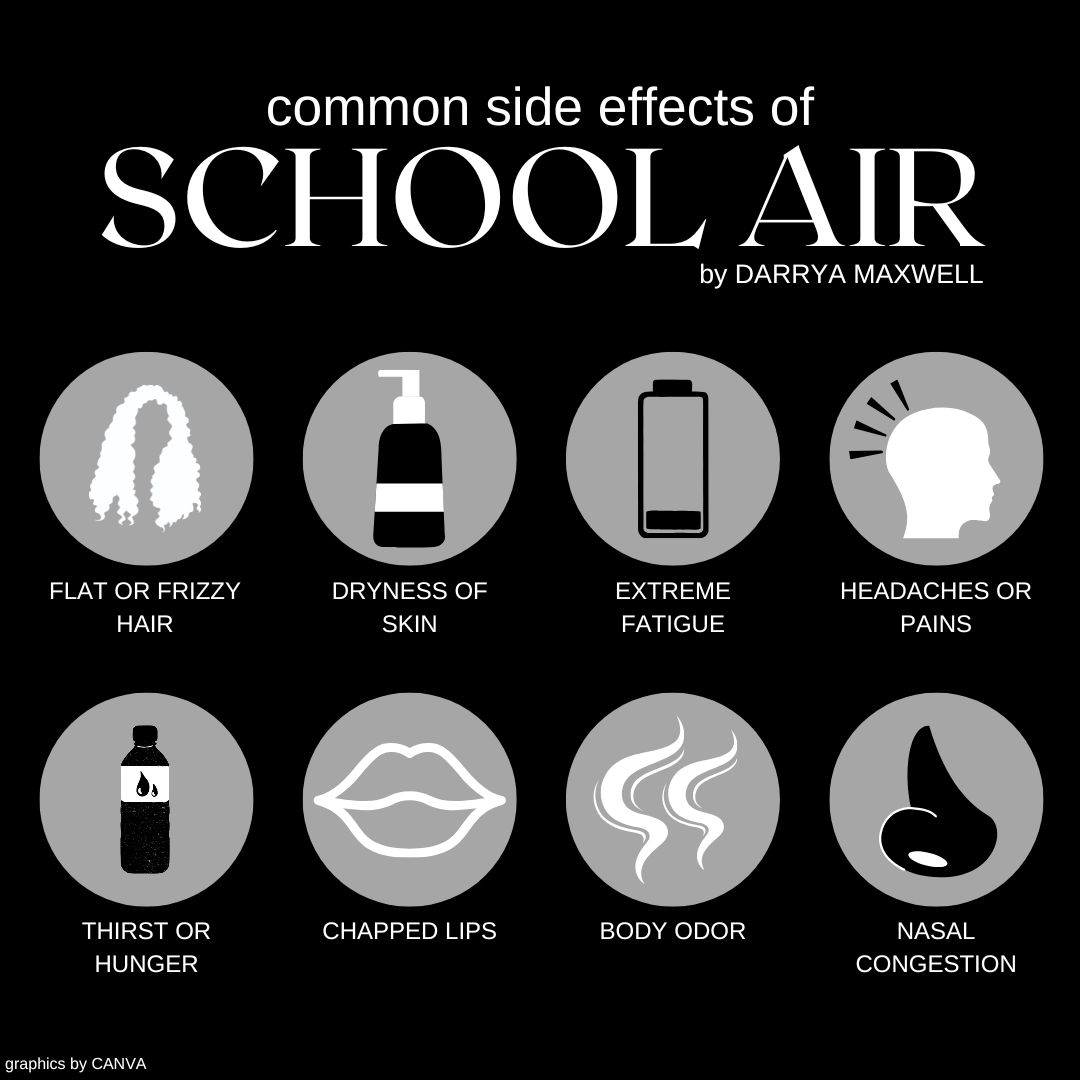
Picture this: it’s the afternoon of a dry summer day and a rainstorm just came through. After the storm passes, you realize that the
air smells rich and earthy, which is generally uncommon. Maybe you remember it from years ago, like Chloe Sandum, ‘25. “It’s nostalgic,” she says. “It reminds me of my childhood.” Maybe you’ve smelled this a handful of times before, but this time, you remember the interesting term that goes along with it.
As defined by the Merriam-Webster dictionary, “petrichor” is “a distinctive, earthy, usually pleasant odor that is associated with rainfall especially when following a warm, dry period.” First coined in the science journal Nature in 1964, the word is derived from Greek, with “petra” meaning stone, and “ichor,” referring to a fluid that flows through immortals’ veins in Greek mythology.
Believe it or not, the science behind the smell comes straight from what’s happening on and under the ground. When the rain falls on dry land, it can displace different organic compounds that humans are sensitive to. For example, a decomposed dead leaf may have molecules that carry an odor, and when those molecules are disturbed by the rain after periods of dryness, they are carried into the air and to our noses.
Another way in which this rainy-day smell can reach us is from what happens under the soil’s surface. After the rain has moved on, our noses pick up a compound called geosmin. This is naturally released by some soil-dwelling bacteria and contributes lots to the overall earthy scent that we know so well, and it is the same smell that comes from a fresh till of your garden.
Some people have fond memories of the rain and the petrichor-induced smell that comes with it. Pluto Koehnen, ‘25, remembers going to Valley Fair with friends and dancing in the rain as it came down over the summer. “It smelled like dirt in a way,” Koehnen says. “I literally have a perfume of the smell of rain.” It is thought that humans have developed this sensitivity to the smells of petrichor over time, allowing us to find water and survive. According to the American Chemical Society (ACS), humans are so sensitive to this that we can detect the scent of geosmin in concentrations of 10 parts per trillion. To put this into perspective, the ACS compares this to having a teaspoon of geosmin dropped in a body of water the size of 200 Olympic
swimming pools. The natural wonders of rain are fascinating yet still not fully understood. So, next time the rain starts falling, don’t forget to go outside and see if the petrichor smell has returned.































